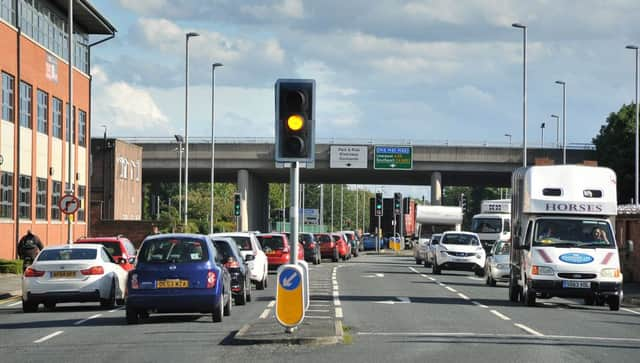Congestion on roads and avoidable delays costing the UK £16bn a year


A major new report said the UK could afford to lose around 80 per cent of traffic lights that cause unnecessary delays which cause a loss of up to £16 billion a year.
And with almost daily problems on the M6 through Lancashire last week, the debate about roads congestion and safety has reared its head again.
Advertisement
Hide AdAdvertisement
Hide AdBabs Murphy, chief executive of the North & Western Lancashire Chamber of Commerce. said: “Traffic congestion is an issue that continues to be a massive headache for the business industry.
“It costs billions of pounds per year to British industry with huge costs incurred to companies in terms of deliveries and delays.
“That’s without taking into account the issue of staff productivity if congestion means they are late arriving for work.”
Major improvement schemes are ongoing in the county.
That includes the massive M6 Heysham link road , which when finished should take off much of the pressure on Lancaster city centre.
And work has finally started on the Broughton-bypass.
Advertisement
Hide AdAdvertisement
Hide AdResearch by the Institute of Economic Affairs found the found that just a two-minute delay to every car journey equates to a loss of approximately £16 billion a year.
The report entitled Seeing Red: Traffic Controls And The Economy said: “Not only is a high proportion of traffic regulation detrimental to road safety, the economy and the environment, it also imposes huge costs on road-users, taxpayers and communities.”
The authors said: “Traffic signals could be taken out where they cause unnecessary delays, perhaps following Portishead-style trials where lights are switched off for several weeks to observe the impact.”
The think tank notes that successful schemes in Drachten in the Netherlands (in 2002) and Bohmte in Germany (in 2007) ended with the scrapping of over 80 per cent of their traffic lights.
“Together with the Portishead experiment, this suggests a broadly similar proportion of signals could be removed in the UK, ” added the report.